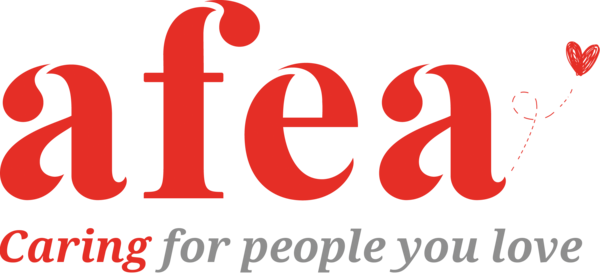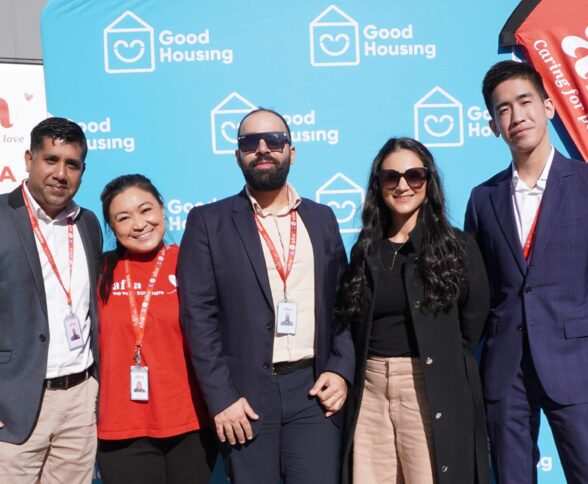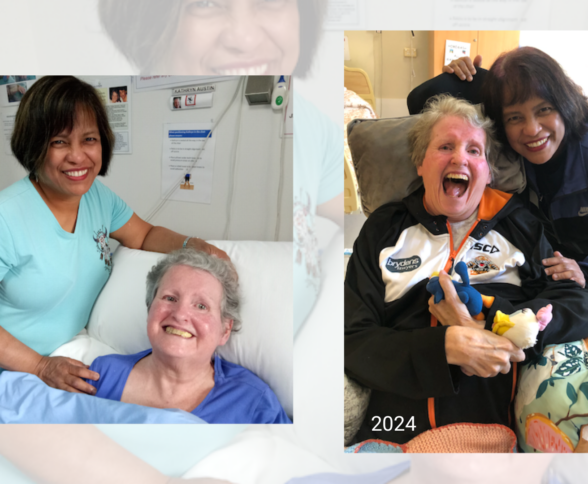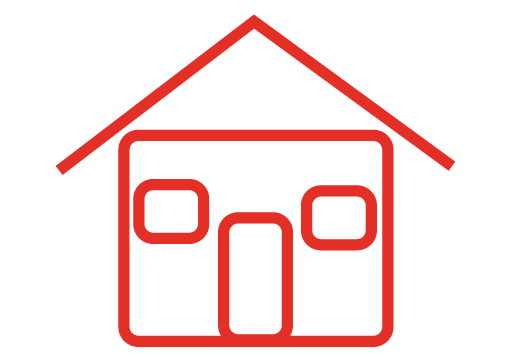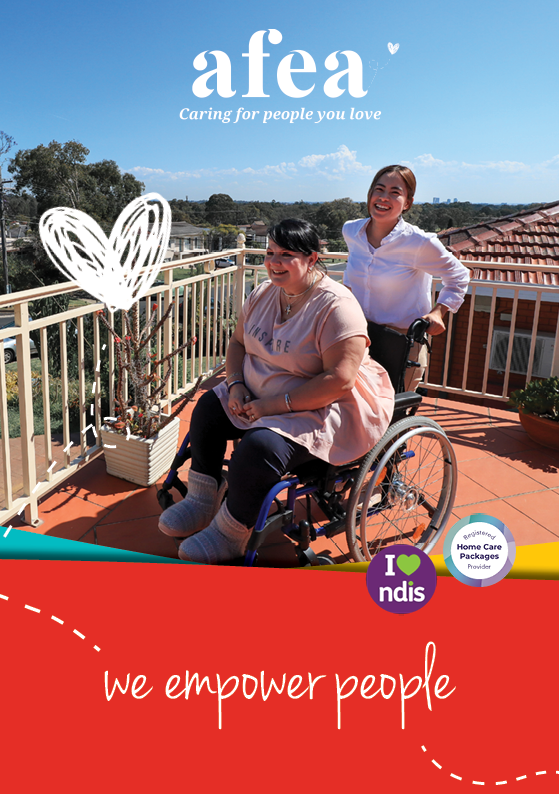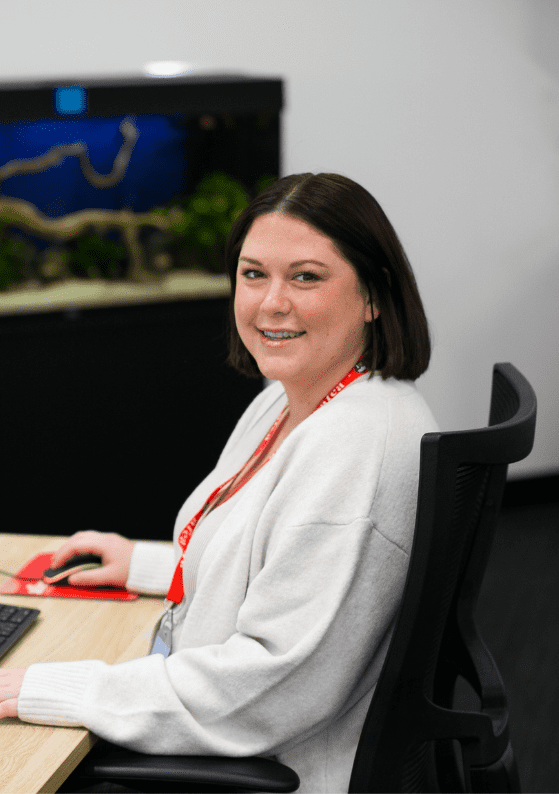An interview with our Care Coordinator, Maria
Autism or autism spectrum disorder (ASD) is a condition that affects a person’s ability to interact with other people and the world around them. According to the latest statistics, 1 in 150 Australians has been diagnosed with autism. A supportive environment can make all the difference for people with ASD, allowing them to learn the life skills needed to live a full and meaningful life.
Our Care Coordinator, Maria, has been diagnosed with autism spectrum disorder and shares her experiences with us. Keep reading to learn more about Maria!
We also share important info about autism spectrum disorder. Our carer Alex shares his experience in assisting people with ASD.
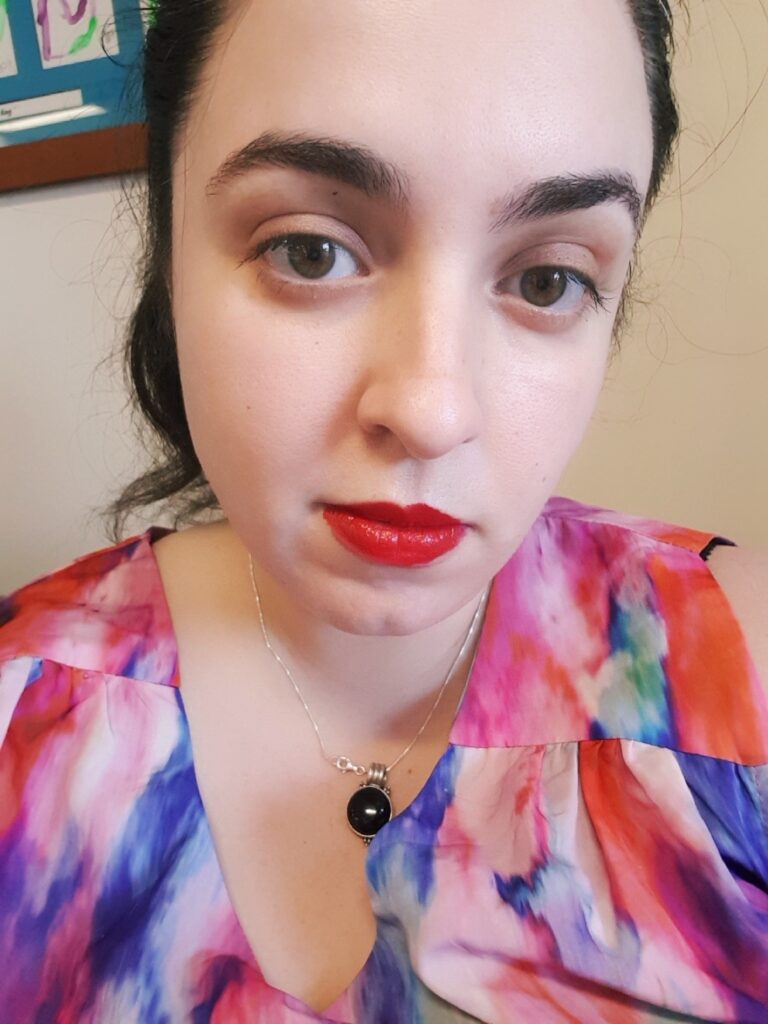
When did you first join Afea and what led you to the organisation?
M: I first joined Afea Care Services last year, in 2021. My mother was with Afea and always said good things, especially about how the team built up her self-esteem.
How did you react to your diagnosis?
M: I experienced a lot of mixed emotions, although I was also relieved knowing there was a reason for some of my difficulties in the past.
Have you received any supports or interventions that you believe have helped you?
M: I have a good psychologist that helps challenge me to do things differently and get out of my comfort zone. Applied Behavioural Analysis or ABA therapy has also helped me in building healthy habits.
What are your areas of strengths?
M: Dedication to my work and my clients. I try my best to go above and beyond.
What myth/s or misunderstandings about ASD do you want to dispel?
M: People with ASD do have emotions, often big emotions.
In your work, how have you supported people with autism?
M: For parents of children who have autism, I have offered ideas from things I have experienced and tried out that worked.
Thank you so much, Maria!
What is autism?
Autism spectrum disorder has been known by many names throughout history.
It was first described in the 1940s as a psychiatric disorder, a form of childhood schizophrenia characterised by “a detachment from reality”. Experts later considered it a developmental disorder distinct from schizophrenia. Under the term “pervasive developmental disorder”, they included other distinct conditions in addition to autism, including pervasive developmental disorder-not otherwise specified (PDD-NOS), Asperger’s and childhood disintegrative disorder (CDD).
Finally, in 2013, the fifth volume of the Diagnostic and Statistical Manual of Mental Disorders was the first to combine four independent diagnoses — autistic disorder, Asperger syndrome, PDD-NOS and CDD — into a single label of autism spectrum disorder or ASD.
The National Disability Insurance Agency or NDIA also uses the term autism spectrum disorder.
Why a spectrum?
The symptoms of autism fall on a continuum. This means no two people with autism spectrum disorder are the same – their abilities and the challenges they may face vary and can even change over time. Some experience severe disabilities that require lifelong support, while others can live independently with minimal support.
According to the latest stats provided by the Australian Institute of Health and Welfare, the majority of people with autism (65%) had a disability with a profound or severe limitation in core activities, which means they need assistance with communication, self-care or moving around on their own.
There are two main areas where people with autism spectrum disorder often have difficulties:
Social communication and interaction which may include
- avoiding eye contact
- difficulty or lack of interest in making friends
- difficulty showing and understanding facial expressions and emotions
- interpreting abstract ideas in a literal way
Restrictive or repetitive behaviours which may include
- sensory processing difficulties such as hypersensitivity to sound
- inability to cope with minor changes or new experiences
- obsessive interests on niche subjects
- echolalia or the repetition of words and phrases
- repetition of movements such as hand flapping or spinning in place
How does the NDIS support people with autism?
In Australia, people with autism spectrum disorder may receive assistance through mainstream health services. They can also access formal support through the National Disability Insurance Scheme or NDIS. As of December 2020, there are around 137,000 NDIS participants on the autism spectrum.
In 2018, the Government adopted a new national standard for diagnosis of autism spectrum disorder, funded by the NDIA. In combination with a functional assessment, the national standard helps in identifying the support needs of a person with autism and determine their eligibility to receive funding from the NDIS.
Applying to join the NDIS is the same for all conditions. The NDIS takes a lifetime approach. It is in place to help people with a disability gain access to daily support and build the skills necessary to live more independently in the future.
Setting goals is an important element of every NDIS plan, as it gives both you and the NDIA an idea of what actions to take in order to improve your future. Before applying for an NDIS plan, think about what you want to achieve using your funding.
The NDIS offers various support services that may help people with autism, such as:
- Support for daily personal activities
- Specialist support such as speech therapy or occupational therapy
- Assistance with social and community participation
- Transportation to enable participation in community activities
- Support coordination or connection to services
- Supports in order to pursue employment goals
- Assistive technology
- Home modifications
What ASD levels are eligible for the NDIS?
According to Autism Awareness Australia, autism spectrum disorder is currently categorised into 3 levels: Level 1 (requires support), Level 2 (requires substantial support) and Level 3 (requires very substantial support).
The NDIA currently has Lists A to E to help determine eligibility for NDIS support.
Individuals diagnosed with ASD Level 2 and Level 3 are under List A, which is a list of conditions likely to meet the disability requirements and qualify them for funding.
ASD Level 1 and related diagnoses such as Asperger syndrome, atypical autism, childhood autism or pervasive developmental disorders not meeting certain severity criteria, are under List B, which generally requires more evidence and further assessment of functional capacity, or how the condition impacts the individual’s functioning in daily life.
How can Afea Care Services help people with autism?
Our Carer Alex shares his experience
Our expert and compassionate carers support people with autism in many ways. Alex shares with us his experiences with three clients.
“One of my clients is a teenager who has autism and is non-verbal,” Alex, one of our Afea Carers, shares with us. “I have been teaching him how to vacuum his room. I iron his school and home clothes. Recently I have been playing basketball with him and last service started to read to him. He has made great improvements with his concentration.
“Another client is a middle-aged man who lives alone and wanted me to support him in behaviour change when socialising in public. This has involved observing his interactions with members of the public and assisting him in doing a self-analysis to make better choices in the way he meets and greets people.
“I am also supporting a man in his early 20s. At the height of the pandemic, I used to visit him in his flat as he was not able to go to shopping centres during severe lockdown. He would open up about his barriers to socially interacting with people, especially around returning products that have broken within warranty.”
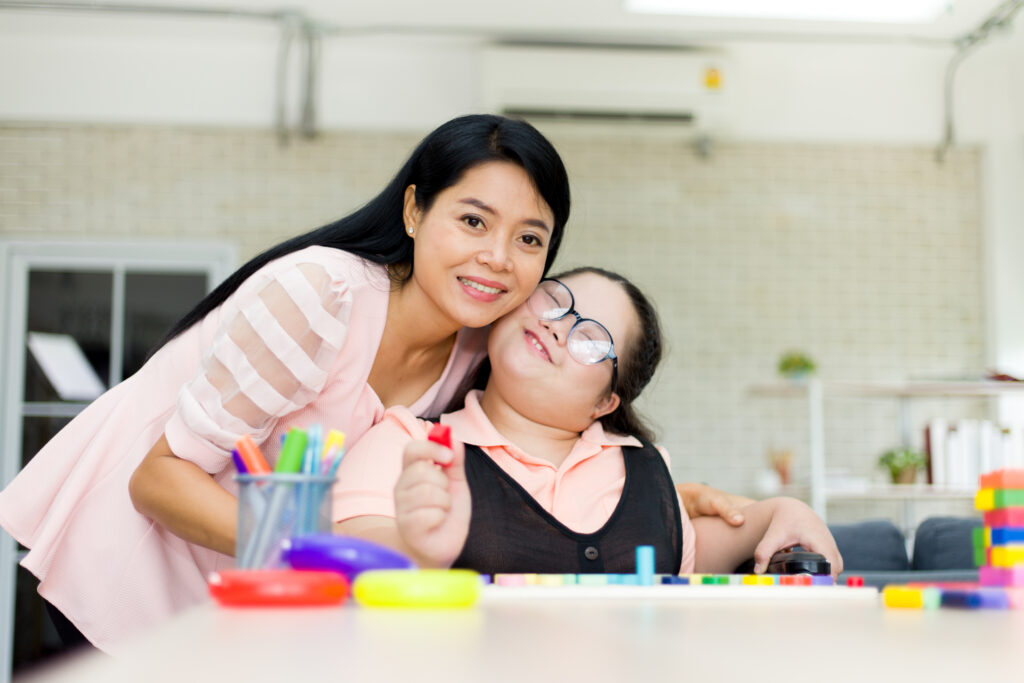
If you or someone you love have been diagnosed with autism spectrum disorder, we can help you in three ways:
- Our Carers can provide a variety of support, from daily personal care to assisting you 24/7 at our Supported Independent Living homes.
- Afea’s Support Coordination team can help you prepare for your NDIS planning meeting and connect you with providers who can give you support.
- With our Plan Management team, you can get the most out of your NDIS funding. They will take care of admin tasks so you can focus on doing the things you love.
